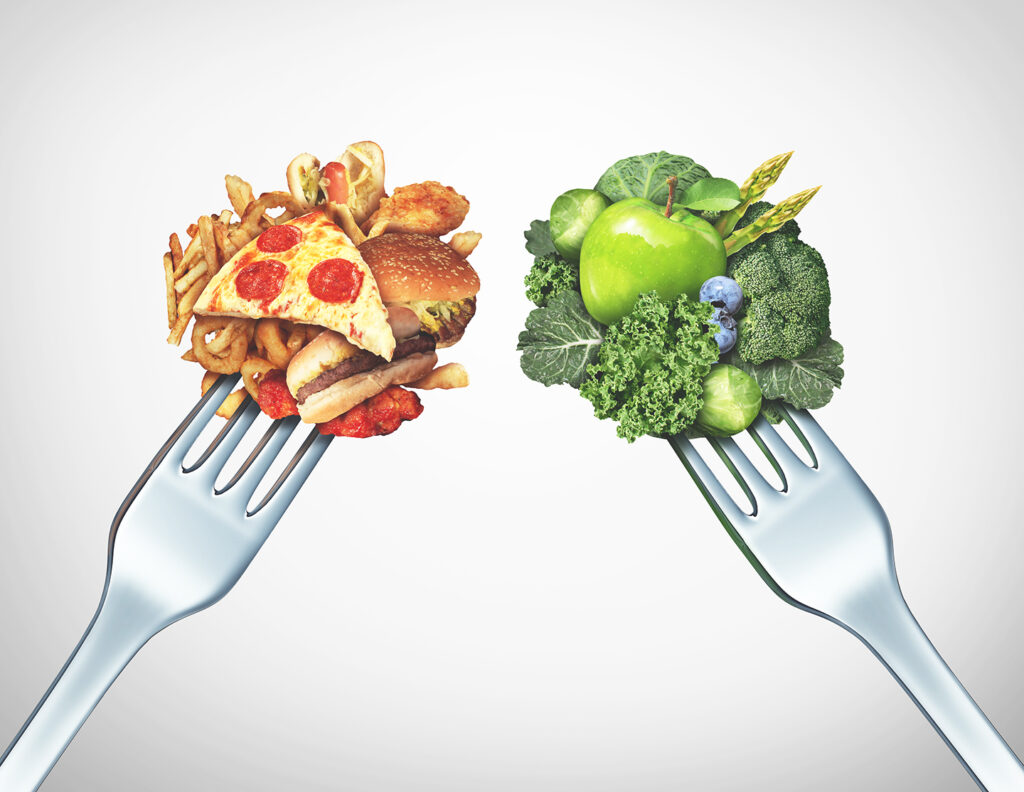Christmas closed: Tuesday, December 24, 2024 – January 1, 2025

Our bodies are alkaline by design and acid by function, meaning our cells usually live in an alkaline environment and produce acid as a by-product of metabolic function. And though most of this natural, organic acid is easily eliminated by the lungs as the nutrients are assimilated, the acid produced by some foods must be eliminated by the kidneys, depleting the alkaline reserve.
Here’s how it works: As foods are digested, they create a residue called ash, which is alkaline, neutral, or acidic. Fruits and vegetables produce a healthy alkaline ash. However, other foods – meats, grains, eggs, and dairy products – leave an acidic ash. During digestion, the usable parts of food are absorbed to help nourish the body, and a residue that can’t be used is left. This residue is acidic when eating meats, grains, eggs, and dairy products. The body doesn’t need it, so it will eventually make its way through the kidneys or bowel and out of the body. However, it must be neutralized – weakened, buffered before it is eliminated. If it isn’t neutralized, it can burn delicate kidney tissue. Your body has this handled. The primary protection it uses against strong acid is alkalizing minerals. These vital minerals can neutralize or tone down the acid. Unfortunately, in the process of neutralizing the acid, the minerals are eliminated right along with the residue. That’s the bad news. The good news is that eating fruits and vegetables easily replaces these lost minerals.
So, what if you don’t eat enough fruits and vegetables compared to meats, grains, eggs, and dairy products? Well, the body will handle that, too. If lost minerals aren’t replaced, other minerals jump in to do the job. However, these substitute minerals weren’t just sitting on the bench waiting to be called into the game! They have important full-time jobs, too. They are taken from their primary jobs when they are called to handle the emergency. For example, Calcium is a “substitute” neutralizing mineral. Calcium is taken from the bones if you don’t replace the neutralizing minerals by eating fruits and vegetables.
A diet can, therefore, be so top-heavy with acid-ash foods that the neutralizing or buffering systems are overwhelmed. When those acid-laden materials arrive at the kidneys, the kidneys still must act to neutralize the acid-fast. This additional backup system is ammonia. Your kidneys generate ammonia, which has a pH of about 9.25. Ammonia raises the pH value.
So, when the body is too acidic for too long, it plays the game of life with a lineup of backup systems. These backups are either substitute minerals or ammonia. When the body is too acidic – when the internal pH is too low – the systems and organs of the body work overtime just to stay even. But systems and organs aren’t always designed to function flat-out in red-alert mode. They need rest just as you do. If the red alert goes on for months or years, because of a diet consisting of mostly high protein foods and comparatively fewer fruits and vegetables, systems and organs become exhausted. An exhausted body can’t compete with disease; eventually, disease wins the game.
Link to Morter March Monday Rebroadcast: